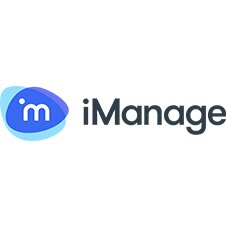Clause for thought: How iManage RAVN is helping to build smarter businesses
We regularly hear that law firms are adjusting their strategies to offer clients more efficient and higher-value legal services. But it’s worth remembering that many of those organisations are under the same pressure to improve the experience of their own client base.
Horia Selegean, head of revenue and margin assurance at BT, says: “As consumer behaviours and preferences change, that puts pressure on multiple service providers, which in turn puts pressure on us.
“The customer needs our technology to support and connect them wherever they go, and that has ripples throughout every aspect of our delivery. As the wider ecosystem changes, we have to change with it, and even anticipate where the market will go next.”
At the same time, employees need empowering to deliver such digital transformation in the most agile and innovative way possible. Part of the response is to become “super-efficient internally,” he says. “We need to cut down on areas that add less value, and take steps to standardise process wherever possible.”
Contract points
One of these areas is contract risk management. Several years ago, BT introduced the artificial intelligence platform iManage RAVN to streamline, store and retrieve information that could pose financial or reputational risk.
Selegean says his own team is “the second line of defence” in this regard. “We need to examine contracts for riskier areas that would constitute higher concern, and test those concerns against business data. The more risk points we can check, of course the less residual risk remains in the business.
“iManage RAVN allows us to automate some of that risk detection. If we identify a key risk hotspot, we can create extraction criteria. The machine will store that learning and identify similar risk points when they appear in contracts that come through in future. And as well as making us highly efficient, it ensures that useful knowledge isn’t lost with any human attrition. Everything is fully auditable.”
As well as clauses, the process can pick out anniversary events that are due, and in both cases the data is directed to revenue assurance, legal, commercial management or finance teams to take specific actions.
“Customer-facing unit teams receive high-quality data on time, which will enable them to perform business validation processes in the most efficient, AI-enabled, automated way.”
The tool can also potentially push a particular contract further on an automation journey, he says. “If certain factors are co-existing, you can be more confident that automation can be applied to a decision with the now structured data. We can automate a lot of our decision-making in a controllable way.”
Improving behaviour
Selegean’s team of financial analysts is effectively a customer of the insight generated, he says. It’s the legal department that’s responsible for training the system in what constitutes the correct risk threshold.
“The legal team builds trust in the integrity of extraction, because they know the true meaning of a clause, and how it may translate in terms of business impact. But they also benefit from the automation, becoming more efficient at control and governance over time.”
This article appears in Briefing magazine: to read the full article, download your copy of Briefing July/August: In-house special here.



